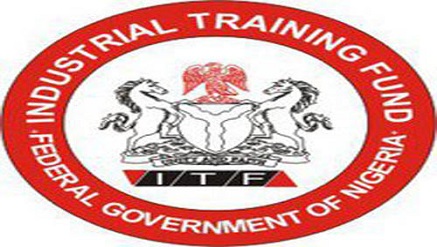E-Financial
ITF Commences Audit of Skills Acquisition Centres

The Industrial Training Fund said it had begun the audit of skills acquisition centres as part of measures aimed at ensuring that the right equipment are used in the training of artisans.
Dr Juliet Chukkas-Onaeko, director-general of the Fund, disclosed this yesterday in Abuja during a tour of the ITF skills acquisition centre.
She said the move would not only help to provide the required skills for the development of the country, but also ensure inclusive growth through job creation and poverty reduction.
She said the audit became imperative following the directive by the Federal Government to the ITF to reduce the level of unemployment in the country through the development of manpower skills of two million Nigerians annually.
She said the audit would help the Fund to know the current state of facilities at the institute with a view to meeting the manpower needs of the country following the implementation of the Nigerian Industrial Revolution Policy.
She said, “We are fully aware of the challenges ahead, we have carried out a full audit of our facilities and we have reviewed the equipment.
“Its not only going to be on this centre, we have four other centres all around Nigeria that we are reviewing in addition to our area offices.
“The unemployment rate right now is very high and we need to train more and that is why we set the target of training two million every year.
“But we can’t do that within our centres and we are reaching out to other people to use other training centres so that we can increase the number.”
She also hinted that the fund, in collaboration with the United Nations Industrial Development Organization would this month begin an assessment survey of the skill gaps in the country.
The outcome of the survey, which according to her would cover all the sectors of the economy would be ready by January next year.
She said, “The actual survey is about to begin and this would be robust and then a report will be ready in the first quarter of next year probably January.
“We are embarking on full scale survey of all the key sectors in Nigeria and we are liaising with organisations to feed us in the gaps that exist so that we can establish where we need to speed up the areas of skills. We are commenting the survey with UNIDO this August.”
The DG, however, lamented that the dearth of fund is currently hampering the ITF from achieving its mandate.
The ITF boss also called on all employers of labour that are liable under the ITF amended act 2011 to remit their training contribution at when due, adding that technical vocational skills training had become capital intensive.
She said, “We are working on expanding the training scope and the people and that requires funding.
“Right now, ITF is funded by internal generated revenue which we have to continue to drive to get more and more and we are reaching out to stakeholders to see how they can participate in contributing more.
“We also have huge liability right now and based on the report from the liability committee we have about N8.5bn outstanding payment to be made and that’s a lot compared to N10bn and hopefully we are going to increase this revenue and reach out and get more creative to get donor agencies to one in to our aid.”
Earlier, the Training Manager at the facility, Alh Ishaku Bello said that the sum of N270m would be needed to upgrade the Abuja skills centre alone.
He said while the centre is targeting to generate N170m in the 2014 fiscal year, it had been able to make the sum of N32m between January and August.
He urged the DG to increase the capacity of the training centre to enable the Fund meets its target of training two million artisans annually.
E-Financial
FBNQuest Merchant Bank Rebrands as Quest Merchant Bank

FBNQuest Merchant Bank Limited has completed a change of name and will now operate as Quest Merchant Bank Limited, following the receipt of all required corporate and regulatory approvals.

The name change does not affect the Bank’s legal or going-concern status, management, or the nature of its business. Quest Merchant Bank Limited remains a duly licensed merchant bank, regulated by the Central Bank of Nigeria (CBN) and the Securities and Exchange Commission (SEC), and continues to deliver its full suite of merchant banking, advisory, and capital markets services to clients.
Commenting on the development, the Ag. Managing Director/CEO, Afolabi Olorode, stated: “This name change represents a pivotal milestone in the rich history of the Bank and a deliberate strategic repositioning that reflects our resilience, strong track record, and long-term growth ambitions. While our name has evolved, our commitment to our clients, stakeholders, and regulators remains unwavering.”
As part of the transition, the Bank is updating its branding, communications, and digital platforms to reflect the new name. During this period, some legacy references may remain visible across select touchpoints as updates are progressively completed.
All existing contracts, client relationships, and obligations of the Bank remain valid, binding, and fully enforceable following the name change.
E-Financial
UBA launches instant digital platform for seamless account opening across Africa, diaspora

United Bank for Africa (UBA) Plc, Africa’s leading financial institution, on Tuesday unveiled a groundbreaking instant account opening platform, revolutionising banking access for millions across the continent and diaspora communities worldwide.

UBA
The fully digital innovation, accessible at ubagroup.com, empowers prospective customers to complete account onboarding online in minutes, bypassing paperwork, branch visits, and lengthy processes that have long hindered financial inclusion. Supporting Naira and Diaspora accounts with multi-language options, the platform operates seamlessly on computers, tablets, and smartphones, catering to UBA’s diverse pan-African footprint spanning 20 countries, the UK, US, France, and UAE.
Shamsideen Fashola, Group Head of Retail and Digital Banking, described the launch as a pivotal step in democratising finance. “At UBA, we are committed to redefining the customer experience through innovation and simplicity,” Fashola said. “This fully digital solution underscores our belief that banking should be accessible, secure, and truly borderless.”
The seven-step process is intuitive: customers select “Open a Savings Account,” input their Bank Verification Number (BVN), undergo facial verification, confirm an OTP, update details, upload documents, add a digital signature, and receive an instant account number. This bridges traditional banking rigour with fintech speed, incorporating digital KYC while upholding stringent security.
Built with compliance at its core, the platform adheres to Nigeria’s Data Protection Act (NDPA) and Europe’s GDPR, safeguarding user privacy amid cross-border operations. Unlike conventional methods requiring physical biometrics, it enables immediate enrolment in UBA’s digital channels, blending convenience with regulatory depth.
Alero Ladipo, Group Head of Brand, Marketing, and Corporate Communications, highlighted customer-centric design. “Today’s customers expect speed, convenience, and compliance without compromise,” Ladipo stated. “We have blended industry-leading digital onboarding with robust standards for a seamless experience matching global best practices.”
The move reinforces UBA’s dominance in technology-driven inclusion, serving over 50 million customers with 30,000 employees and pioneering retail, commercial, and institutional services. Analysts view it as a strategic edge over fintech rivals, accelerating Africa’s digital economy amid rising diaspora remittances and intra-continental trade.
As Nigeria and Africa push financial digitisation, UBA’s platform positions the bank to capture untapped markets, fostering economic growth through barrier-free banking
E-Financial
Kuda MFB Secures National Microfinance Banking Licence, Sets Stage for Nationwide Growth

Kuda Microfinance Bank (Kuda MFB) has received a license from the Central Bank of Nigeria (CBN) to operate as a National Microfinance Bank, which means that it can now have a physical presence across Nigeria.

Musty Mustapha, MD/CEO of Kuda MFB
With the Unit Microfinance Bank licence it held until December 2025, Kuda MFB’s physical operations were limited to a specific location. The national licence removes those geographic restrictions, allowing the bank to open customer experience centres in multiple parts of the country. It also regularises Kuda MFB’s licensing status in line with the Central Bank’s framework for microfinance banks.
According to the bank, the national licence is about regulatory alignment and operational flexibility rather than a shift away from its digital-first model, so it will continue to lead with digital banking services, offering Nigerians the convenience of making transfers and payments, saving, and accessing instant credit through the Kuda app.
Musty Mustapha, MD/CEO of Kuda MFB, said, “Securing a national microfinance banking licence is an important step for us as a regulated institution. It strengthens our relationship with the Central Bank and affirms our commitment to operating at the highest standards of compliance as we scale. While we remain digital at our core, this licence gives us the flexibility to create more physical touchpoints where customers want in-person support or engagement, allowing us to serve Nigerians across the country in whichever ways are most convenient for them.”
Subject to regulatory approval, Kuda MFB plans to open more experience centres designed for customer support and community engagement, in the style of its existing experience centre in Yaba, Lagos, where customers and the general public can speak directly with the Kuda team to get help and learn about the microfinance bank’s products and services.
Kuda MFB’s national licence does not change its existing product offerings or transaction capabilities, but it provides the regulatory backing for a nationwide presence.

 E-Financial2 days ago
E-Financial2 days agoPayPal Goes Live in Nigeria through Paga

 Telecom1 day ago
Telecom1 day agoPolice Bust ₦7.7bn Telecom Hack Gang, Seize 400 Laptops in Massive Fraud Swoop

 Broadcasting2 days ago
Broadcasting2 days agoNITDA, NBC Explore Strategic Collaboration on Digital Transformation, Media Regulation

 General News1 day ago
General News1 day agoNaira Smashes Through ₦1,400 Barrier in Official FX Rally

 General News1 day ago
General News1 day agoNCC Slaps ₦250,000 Fee on Trial Licences to Spur Telecom Innovation

 General News2 days ago
General News2 days agoFacebook Powers Connection, Creativity at African Creators Summit 2026

 E-Business2 days ago
E-Business2 days agoGold Hits Record $5,110/Ounce Amid Trump Tariff Threats, Geopolitical Fears

 Telecom2 days ago
Telecom2 days agoTikTok, Instagram Blamed in US Youth Suicide Lawsuit

























